#Womens Sanitary Pads Brands
Explore tagged Tumblr posts
Text
"Always" period pads - toxic as hell
After 15+ years of periods, I moved to a new country and decided to give the "Always" period sanitary pads a chance. I got the sensitive, soft, unscented ones — and hell began.
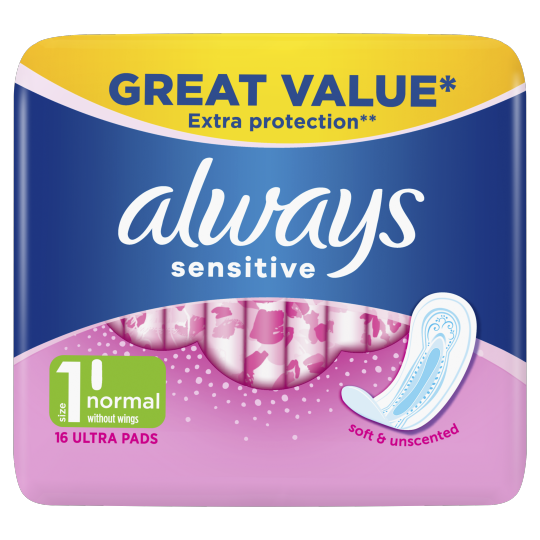
Within one day of using them, I was super itchy in my vagina. Now bear in mind I had never before in my life had vaginal itchiness. Pubic itchiness, occasionally, yes, even the odd vaginal itch now and then, but not during an entire period, practically every hour, and with a level of intensity that was driving me insane. I'd never had an infection there, nor a virus, I hadn't had sex, no way I had STDs. But it itched horribly and when I peed, the itchy area stung. And so I began worrying.
I read everything I could find on diseases, bacterial infections and viruses affecting the nether-lands, I looked down there with a mirror, tried to feel for blisters, checked the smell, analysed fluids and dryness... and I still couldn't find anything remotely abnormal other than the fact that it itched. At last my period ended and, two-three days later, so did the itchiness. Phew.
And then the next period began, and the next. It took a few tortuous periods filled with horrifying itchiness and burning down there for me to realise that the only thing I was doing differently to pre-stinging days was changing the brand of my period pads. I had bought two boxes of "Always" sensitive, soft skin pads. Two. (Note to self, when trying a new brand, only buy one box). I still had half about twelve pads left to get through.
Desperate, I looked online to see if the brand wasn't good, and here's the hell I found:
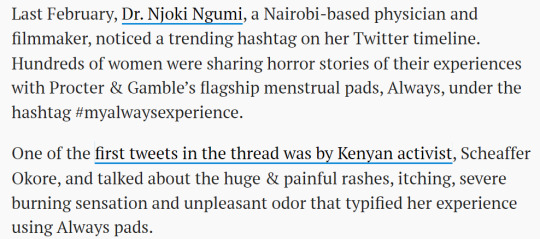

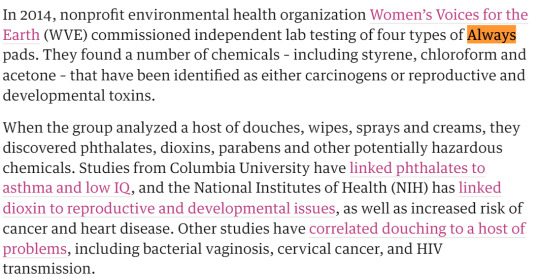

I've now stopped using Always pads and my symptoms have immediately improved. I've contacted the supermarket demanding explanations, doubt anything will happen, but still. I've also contacted my doctor to see if this can be reported, because I can't believe that with studies saying Always pads contain irritants and carcinogens, they're still being sold left and right.
Please, please, please, for the love of God DON'T BUY ALWAYS PADS. REPORT THEM. SPEAK TO ANY CONSUMER'S ASSOCIATION YOU'VE GOT IF THERE'S ANY (here there's none useful). Contact your representatives! DON'T LET A BIG COMPANY GET AWAY WITH MAKING WOMEN ILL ON PURPOSE.
#always#always brand#period pads#sanitary pads#always sanitary pads#always pads#women#women's health#period#menstruation#menstrual pads#health#women's well being#the guardian#news
16 notes
·
View notes
Text
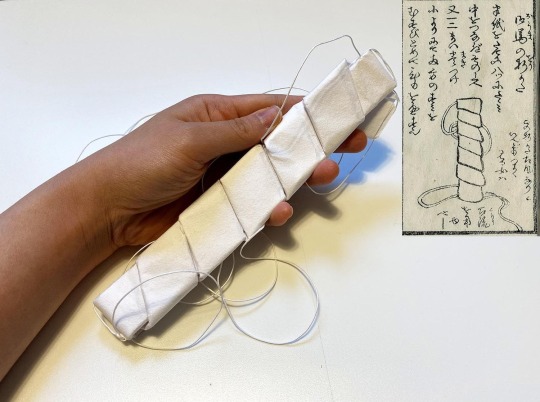
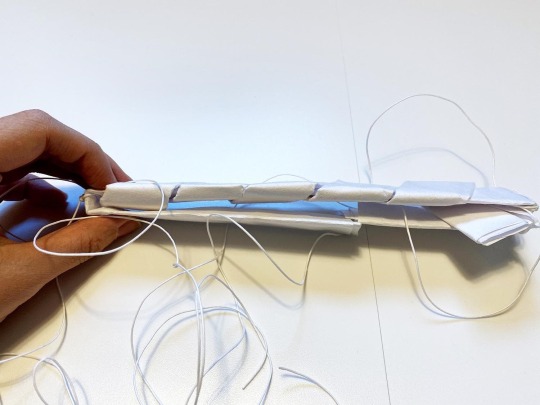
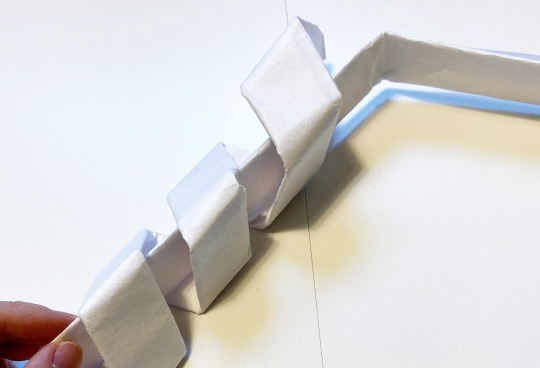
Cw: We are going to talk here about periods, and sex education in the past. Read this note according to your own sensibilities :)
How women dealt with periods during Edo period, article by shunga enthousiast Shungirl who made a paper pad following instructions found in makura bunko 枕文庫 - ie ancient sex books illustrated with erotic ukiyoe.
One of such makura bunko is 渓斎英泉 Keisai Eisen's 閨中紀聞-枕文庫, first published in 1822. It details Chinese remedies recipes for menstrual pains and irregularities, give tips about sex, and information about menstruations and pregnancy. From a modern point of view, some beliefs are outdated, but it was then such a bestseller it went through several reeditions.
Several words were apparently in use during Edo era to designates menstrual period: keisui 経水, gekkei 月経, tsukiyaku 月水, etc.
When girls went throught their first period, their females relatives or nannies would taught them how to deal with them. One method was to use paper as sanitary products (please note people without easy access to paper probably dealt with periods differently).
__________ 御馬 paper pads
Sanitary pads, such as the one recreated above by Shungirl, were then called mima 御馬 (probably as a pun on true "mima" which were then fine horses own by noblemen, or attached to sanctuaries as mounts for gods etc) or simply ouma お馬 ("honorable" horse).
Ouma were made from inexpensive recycled paper called Asakusagami 浅草紙. Sheets were folded 8 times, tied with twisted paper strings (koyori 紙縒), and then wrapped with another layer of folded paper. It was secured once again with paper strings.
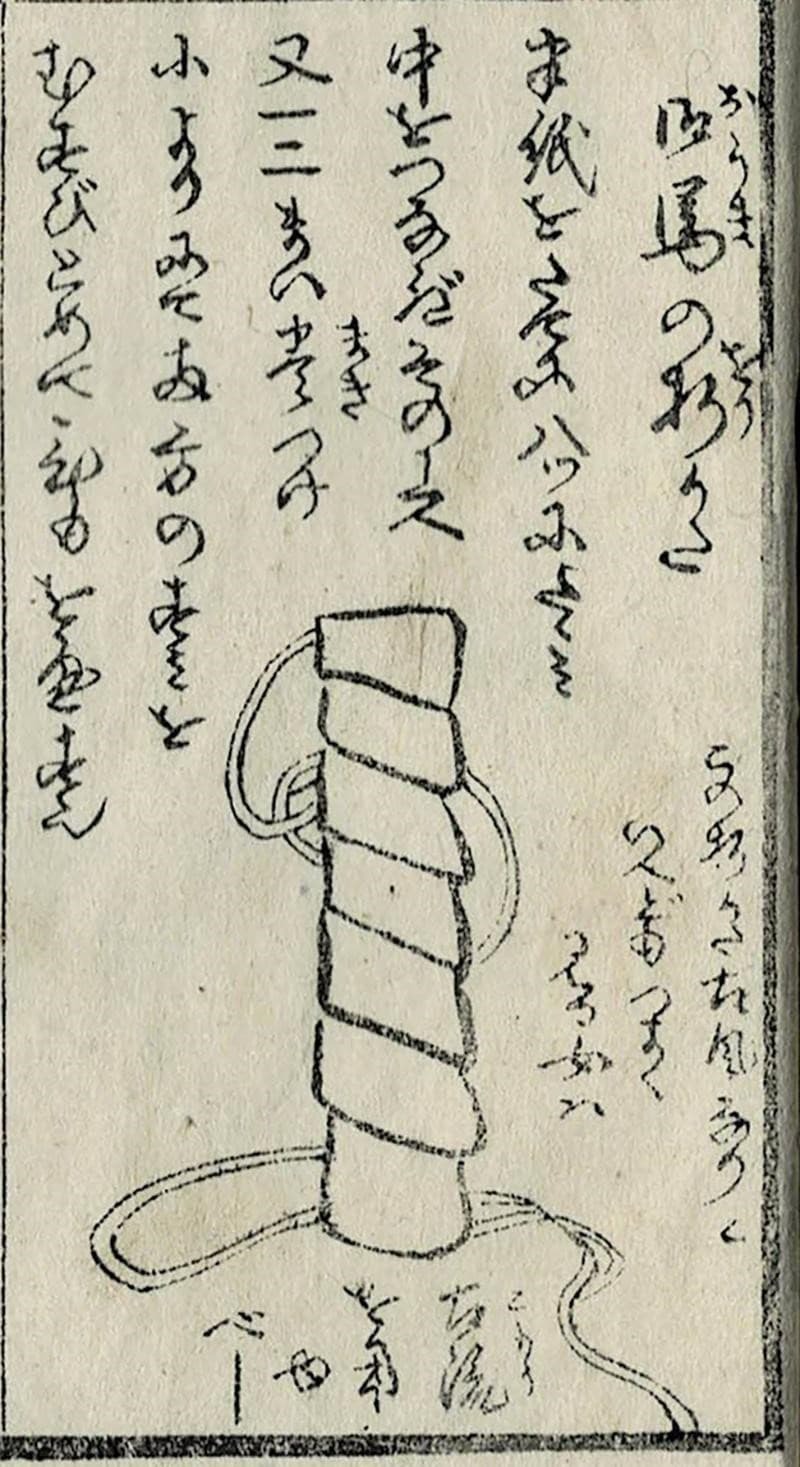
Part of the strings could be left long so to tie around the waist, or/and pad was hold into place by wearing fundoshi 褌 loincloth (which would also help prevent leaking on inner tights).
Asakusagami quality was low (it was also used as toilet paper) so paper pads had to be changed often, meaning you had to fold quite a lot of them to go through your period!
Shungirl folded the pad above following instructions found in the book 実娯教絵抄, which provided several other "models":
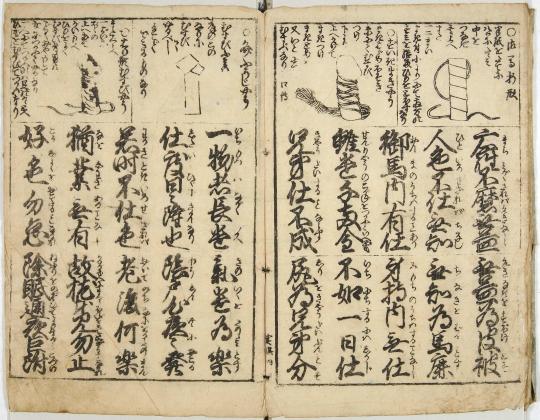
__________ 詰め紙 paper tampons
Another method for dealing with periods were tampon-like paper bundles which were inserted into the vagina, the 詰め紙 (tsumeshi? I am not sure of the reading).
This method may have first appeared in red-light districts (?). Beside its use for periods, prostitutes also used those tampons as method of contraception (OP has an interesting article on this subject).
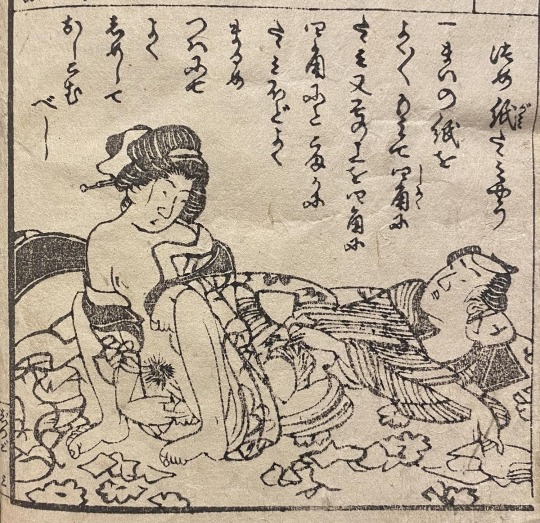
By the end of Edo period and into Meiji, paper tampons were widely used even by women who were not prostitutes - despite voices branding this method as unsanitary.
__________ About girls' coming of age rites
Menarche (first period) was an important milestone for girls, and was celebrated as such via specific rites (shochō o iwau 初潮を祝). Those differed a lot from places to places, and also depended on social status.
Celebrations would concern close family, but often spread to wider community who could received for example a festive meal (sekihan 赤飯) for the occasion (some Edo era senryû poems stress how mortifying this publicity could be!).
Interestingly, some traditions were also pretty sweet: in some places, mothers would sew 3 stiches into their daughter's underskirt (koshimaki 腰巻き) as a good luck charm, hoping their periods would last only 3 days <3
Those rites were part of coming of age traditions (seijoshiki 成女式) which marked the start of a young woman adulthood. Another example is the blackening of teeth (ohaguro お歯黒) which usually started around 16-17 years old.
Celebrating menarche publicly was a way of advertising that the girl was no longer a child and would "soon" be a bride. Yet, if menarche often took place around 13-14 years old, in reality it was somehow unusual to have girls married so soon!
Before marriage, especially in non-noble/samurai families, young women often started their sexual life via flings or yobai 夜這い ("night crawling" ie pseudo-secret nighttime encounters) before any wedding actually took place.
#cw: periods#cw: sex mention#japan#japanese history#edo period#edo era#periods#sex education#sex history#sanitary pads#tampons#paper pads#ouma#mima#paper tampons#tsumeshi#coming of age rites#ressources#references
610 notes
·
View notes
Text
Women can buy period pants for £2 cheaper than current prices after the government abolished a tax on the product.
As of Monday, retailers including supermarkets Marks & Spencer and Tesco, as well as clothing shop Primark, have promised to pass on the savings (worth 16%) to customers.
It follows a campaign by retailers, women’s groups and environmentalists. Other period products such as sanitary pads and tampons have been exempt since 2021.
Women will save on average up to £2 on period pants, the government said. The pledge to scrap the tax was made by the chancellor, Jeremy Hunt, in the autumn statement.
In August, retailers including Marks & Spencer and the brand Wuka were among about 50 signatories of a letter to the Treasury which urged the government to remove VAT on period pants.
In the letter, they pledged to pass on any tax cut straight to customers “so they feel the benefit of the cost-saving immediately”.
Period pants are increasingly popular, and are now on sale from major high street brands, offering a sustainable alternative to single-use products such as tampons. The pants contain a highly absorbent lining and can be used in place of sanitary pads. They can be washed and reused, just like ordinary pants. Campaigners said that removing taxation would make them more affordable.
Period pants were not covered in the 2021 law change in which the “tampon tax” on period products was removed. This is because they were classed as “garments” and therefore considered exempt.
The letter from retailers in August said that period pants “have the power to reduce plastic pollution and waste”, and could save people money in the long term. They said: “One of the main barriers to switching to period pants is the cost.”
The financial secretary to the Treasury, Nigel Huddleston, said the change was a “victory for women” and for those who had “helped raise awareness” of the importance of this product.
VAT is paid at 20% on most products, except for some items such as books children’s clothing and most food.
Victoria McKenzie-Gould, the corporate affairs director at Marks & Spencer, said the company was “thrilled” with the decision.
“Nearly 25% of women cite cost as a barrier to using period pants so we know the new legislation that comes into effect from today will make a big difference to women’s budgets across the UK.”
The savings for women are subject to the VAT cut being passed on, with retailers pledging to play their part.
Laura Coryton, a tampon tax campaigner and founder of social enterprise Sex Ed Matters, said: “Ending the tax on period underwear will make a huge difference, particularly given skyrocketing levels of period poverty across the UK.”
30 notes
·
View notes
Note
I’m sure you get a lot of asks, and it’s understandable considering how great you ladies are! I recently read your sustainability swap post (I loved it!) and I wanted to recommend something I didn’t see on there that’s incredibly important to me.
Swap out tampons and disposable pads for menstrual cups and cloth pads!! It’s an adjustment for sure (esp the menstrual cups) but it’s so good for the environment, your health, and frankly your wallet. I made the swap to a menstrual cup abt 5 years ago and haven’t had to buy tampons (minus a few early cycles until I started carrying cloth pads w me) since — and I’ve had the same cup and it’s still working great!
When it comes to the cups ItsJustKelli on YouTube has a great playlist where she reviews multiple diff products to make choosing easier (https://youtube.com/playlist?list=PLVehiHoQpDmAQwa9UrHXF9IBzHp3cUenE). It might take some trial and error, but it is well worth the switch, considering your average cup costs abt $35 and (if taken care of) can last at least 5 years. And as far as cleaning it you really only need Castile soap, a repurposed toothbrush, hot water and a decent stainless steel pot to sterilize it in (any company you buy from has a How-To page on the cleaning aspect. They will try to sell their Special Soaps DONT LISTEN ITS A SCAM! Just buy Castile soap and toothbrush same end result!)
As for the cloth pads, there are so many websites for them, and most offer starting kits. They cost more than your average box of disposables, but rather than lasting you a few cycles they’ll last you YEARS. This website https://menstrualcupreviews.net/reusable-menstrual-cloth-pads/ has a list of them. The only brand I can recommend I got off Amazon (guilty as charged) and are great for getting started. (wegreeco Bamboo Charcoal - Reusable Sanitary Pads | Panty Liners | Soft Cloth Menstrual Pads - 6 Pack with 1 Cloth Mini Wet Bag (Medium, Luxury ) https://a.co/d/cTf4mfF)
Ultimately, when I was considering switching I weighed the pros: 1. Save money long term, 2. No longer contribute to the growing pile of blood-soaked, chemical-ridden used tampons and pads clogging landfills, 3. No longer run the risk of introducing toxic chemicals to my body via products made by companies that don’t care abt consumer health; and the cons: 1. More money upfront (which can be circumvented by shopping around and setting aside some money as is feasible), 2. Having to get more comfortable w my body (which ultimately was a positive), 3. The gross factor (downside: yeah you’ll likely see the blood, neutral: it’s your blood tho and you know where it’s coming from; neutral: w the disposable vs. cloth pads the end result isn’t that diff beyond instead of chucking it in the trash you chuck it in the washing machine), and 4. The adjustment of carrying a few cloth pads around (instead of the disposables — not that big of a change).
End note: I did not mean to turn this ask into a novel, but I am just so passionate abt this topic. So many ppl will go into the minutiae of cloth rags and cloth napkins instead of paper towels and paper napkins, the evils of plastic straws, and reusable bags instead of plastic — but not a peep abt the amount of disposable products used for 3-5 days (longer if you’re unlucky like me), every month (or every few depending on birth control, irregular cycles, etc.), every year for decades (think between 3-4 decades depending on start time and menopause) for millions of women worldwide. That’s SO MUCH. And here are two, slightly difficult but worthwhile, choices that can decrease the amount of disposable products clogging up landfills by the thousands long term. As one of the websites I linked says: “The average American woman uses nearly 17,000 tampons in her lifetime — or as many as 24,000 if she undergoes estrogen replacement therapy. And that’s just tampons.”
HELL. FUCKING. YES! Thanks so much for chiming in, baby. We love it when bitchlings share advice with the whole class, so never be afraid to write a long ask with good information.
Here's that sustainable swaps article, as well as what we've written about menstruating while poor:
21 Ideas for Sustainable Swaps That Aren’t Shitty, Expensive, Greenwashed Garbage
Blood Money: Menstrual Products for Surviving Your Period While Poor
If you found this helpful, consider joining our Patreon.
42 notes
·
View notes
Note
Have a character rant about Terry Jr, featuring Ron and some random headcanons about the relationship between TJ, Nicky, and Cassandra! Because nothing bad has happened to any of them at all, what are you talking about (oops, this ended up being long)
Terry Jr absolutely despises the scent of anything "For Men", which makes the soccer changing rooms in hs sensory hell. As a result, all his toiletries are technically marketed at women, but he is willing to pay the pink tax for floral-smelling stuff instead of... That.
(Ron notices how much his stepson hates it, and so also switched to quote-unquote for women products. In his enthusiasm to be supportive, he somehow ends up buying scented sanitary pads)
He still plays soccer, even as an adult. It's just at his local pub's team (which might not actually be a thing in America, oops) but he kept it up fairly consistently throughout his life.
Since being called away for DADDIES missions can really fuck up your work schedule, he works part time as an assistant coach/teacher at a dance studio with surprisingly flexible hours and a very understanding boss. Admittedly, she's seen him break down crying more than once over DADDIES-related shit that he had to explain with half-lies, so that may explain some of her patience with his unruly hours
Mostly he does community theatre though
He actually meet Cassandra before Nicky did! They were on the same drama course at college, got assigned together, and really hit it off. They ended up bonding so much that they considered each other their psuedo-sibling. Since, in this headcanon universe of blurredness, Cassandra doesn't talk to her parents at all, Ron and Samantha basically adopted her when Terry Jr brought her home during the school holidays, which only deepened their sibling bond
Terry's nickname for her is Star, because she shines bright and he was convinced she would make it big time in the acting biz. She has a little custom bracelet that he got her as a wedding present with that on.
He religiously drinks hot chocolate before soccer games, because Ron thought that a "warm up" was a drink to warm you up before a game. He put marshmallows in it and everything, so Terry Jr just happily accepted the bizzare brand of affection and support that so often comes from Ron. The one time he didn't drink it, they lost the game, and ever since that game the Doodlers make sure everyone has a hot chocolate before the game. They never lost since
(Additional headcanon that Grant accidently passed that pre-game ritual to Lincoln)
Since Ron can no longer wear pants, he took to wearing skirts when needed so as to not get arrested. However, due to a lot of the internalised toxic masculinity Willy installed in him, he felt uncomfortable doing so. Terry Jr dragged all the other kiddads thrift shopping for cool skirts and they suprised Ron at the next Oak-Garcia-Wilson-Stampler-Close-Foster-Freeman family BBQ by wearing them. Ron was so happy about them supporting him, he almost cried. Terry Jr ended up keeping skirts and dresses as part of his fashion rotation, and would even wear sports skirts (which have built-in-shorts) on the soccer field sometimes. When Ron disappeared, he stopped wearing them. He still has a gorgeous, corseted, galaxy dress in his side of the wardrobe at the Stampler-Marlowe residence that he hasn't been able to bring himself to wear, but also hasn't been able to bring himself to part with. Scary's seen him taking it out and looking at it longingly, and is definitely not devising a secret plan to get him to wear skirts by making him take her prom dress shopping and making him try on some himself. (She doesn't know why he looks so sad and longing, or why he doesn't wear them when he clearly wants to, but deep down she thinks he should. Terry Jr would start wearing skirts again for her)
Terry Jr and Cassandra both used some theories from Samantha's psychology books to train themselves so they have better coordination and clearer speech whilst drunk than sober (basically, you can remember things better in the condition you learned them in. That includes memorising a list of words whilst drunk. Idk if this actually applies to muscle memory, but for the purposes of this, it does)
Nicky and Cassandra have conspired to test all of Terry Jr's romantic partners, because they are both of the opinion that he only deserves the best and shouldn't put time and effort into people who won't stick around. This includes, but is not limited to, Nicky full on making out with Terry Jr in front of them, and Cassandra walking out into the living room of her and Terry's shared apartment in only a bra and sweatpants. She then proceeds to introduce herself as Terry Jr's roommate, rather than his sister like she usually does, in such a way that she's not outright implying that they have a fwb relationship, just enough to test if they'll get jealous or properly talk to him about why he seemed so completely unphased about her walking around topless (the answer being that she does it often, and it's only a problem when he has friends over who are attempting to be respectful. Grant covered his eyes and dove under the covers the first time it happened, because he didn't want to make her uncomfortable, despite the fact that she knows he's gay as fuck)
Terry Jr and Nicky have a very odd romantic friendship that everyone around them (which is admittedly just the other kiddads, Marco, Cassandra, and Rebecca) act like is completely normal, so occasionally Terry Jr just... Forgets? To tell his new partners about the fact that yeah, he and Nicky occasionally kiss and go on dates and by occasionally he means pretty much every week. Like, genuinely completely forgets that that's something he should mention because they might not be cool with essentially being in a polycule
Honestly, the entirety of the kiddads and spouses is like a QPR polycule
It is a frequent joke that Cassandra's initials can just as easily stand for Cassandra Stampler as Cassandra Swift. It is also a frequent joke that Terry Jr nicknamed Taylor angel, specifically for the irony of him being part demon. As a result, whilst legally Taylor's name is Taylor Alexander Swift, if you ask Terry what his initials stand for, he will without fail say Taylor Angel Stampler. Nicky is not impressed (he secretly finds it hysterical)
Terry Jr wants nothing more than for his friends/family to be happy.
Nicky and Cassandra's relationship was one that would have made a wonderful summer fling that ended naturally, but they both pushed it further than it was meant to live to try and show Terry that they were happy, so he wouldn't worry about them. The fact that Nicky whisked Terry Jr away during the wedding to make out with him should have been a big sign that this wasn't going to work out.
They were starting to file for a divorce, having mutually agreed that the type of relationship they were forcing themselves into wasn't working out for them, when they found out that Cassandra was pregnant. They halted the legal divorce and Nicky moving out, with the agreement to raise Taylor together for the first two years, and then have a 50/50 split of custody. Nicky was going to move back into Terry Jr's apartment when that happened (the betrayal happened before that could occur)
Cassandra often jokes that Terry Jr is more Nicky's husband than she is, since he was with him before, during, and after her
Terry Jr's preferred method of drinking water is not water with some ice cubes in it, but an entire glass of ice cubes with some water in it to stop them from sticking together due to the cold. Outside of sports, he's not good at remembering to hydrate, so he just crunches on ice instead
saw the notification for this , looked at , saw how much I needed to scroll , and immediately let out an absolutely delighted squeal hoLY SHIT ANON AHSJJWKDJND !!!!!! /pos
the terry/nick/cass polycule is something I never knew I needed but now refuse to live without, thanks <3333 truly the definition of this is my boyfriend and this is my boyfriends wife <33 Nick and Cass testing out all of Terry's partners is so fucking funny I love it , ALSO TERRY JUST . FORGETTING TO TELL PEOPLE HES BASICALLY DATING NICK EBJDJSKSKKSS they're just so silly and I will be Thinking™ abt them <333 but Terry meeting Cass before Nick did is actually so interesting to me , they are SIBLINGS your honor !! and the star nicknameee whahdjd 🥺🥺 I love them dearly <33 also the whole thing abt the skirts 🥺 Terry convincing the rest of his friends to wear skirts to support his stepdad 🥺🥺 and then him continuing to wear them ! AND THEN STOPPING ONCE RON DISAPPEARED WOSIHSJSJS 🥺😭😭🥺 plus the bit abt scary deciding that she wants to help Terry be comfortable wearing his skirts/dresses againnnn 🥺🥺 she cares abt him !!!! I just love all of this v much , ty anon I love you dearly<333
#i hereby dub thee tj anon#ok but literally absolutely delighted to receive this#youve made my week anon#this was an absolute joy to read through and i love all of it v much !!#this is all canon to me btw <333#dndads#dndaddies#dungeons and daddies#terry jr#terry jr stampler#terry stampler#tj anon
19 notes
·
View notes
Text
By mid-century, the job of the home economist was no longer to educate, but to "convince." From a corporate point of view, nothing could be more dangerous than a knowledgeable, "scientific" consumer. The domestic scientists’ ideal homemaker—well-versed in chemistry, sanitation, nutrition and economics��would be as out of place in a garishly seductive, Muzak-filled supermarket as Mrs. Richards herself would have been at an Avon party.
Housework skills themselves were getting out of style. Consider the brain-numbing communications to be found on food packaging: One. Open box. Two. Empty contents into large bowl. . . . Here at last is genuine "scientific management" in the home: the ultimate task breakdown, the complete separation of the "worker" (the housewife) from the "manager" (the manufacturer in a distant office). The semblance of autonomy remains: you have, after all, selected the flavor and the brand yourself, and you may, if you wish, add an egg.
The domestic scientists had expected to elevate the homemaker into partnership with the scientific experts—nutritionists, sanitary engineers, economists. They would have been shocked, at mid-century, to discover that the homemaker had instead become the object of scientific study. Corporate sociologists probed for her foibles; psychologists worked on techniques to make her dazed and suggestible. As a result, supermarkets were designed to make the shopping trip as long as possible. Displays were designed to produce enough "sensory overload" to stimulate "impulse buying." Cereals and candies were placed, cunningly, at the child's eye level.
Consumer education had become consumer manipulation. Market researchers had discovered that the most purchase-oriented shopper is socially isolated, technologically uninformed, and insecure about her own domestic competence. It was these traits that the new consumer "educators"—the manufacturers and admen—sought to cultivate. The TV housewife is anxious about the brightness of her wash, the flavor of her coffee, or the luster of her floors. Enter the male “expert”—a professional-looking man or perhaps a magician-helper like "Janitor in a Drum" or "Mr. Clean"—whose product, “studies show,” will set things right. The actress-housewife beams with gratitude, and testifies to the impact that Hamburger Helper or Brillo soap pads have on her life, if not on her total self-image. As far as the manufacturer goes, the homemaker is still (thankfully) a domestic but not (hopefully) a scientist.
-Barbara Ehrenreich and Deirdre English, For Her Own Good: 150 Years of the Experts’ Advice to Women
14 notes
·
View notes
Text
I learned today that the original design of Kleenex was to be a battle field wound dressing and gas mask filter for WW 1, then later it became a beauty product, to remove makeup using cold cream. And so it was a woman's product, men didn't really use it, and stuck with their handkerchiefs probably. The stuff was called Cellucotton. And it later around the 1920s went onto be used into making menstruation pads, aka KOTEX yep still that same brand today. Then at some point one of the researchers realized they made a great alternative to cloth handkerchiefs. And were then marketed as a disposable handkerchief nearing the end of the 1920s. And LO AND BEHOLD, Kleenex was born, as A "cleaning kotex" but changed the named enough so it wasn't associated too much with women's makeup routine and the sanitary pad and appropriate for also dude and general public use. And their big gimmick was to not to keep your cold in your pocket. So now you know why Kleenex are soft and favorable for the face, its not just for your nose, but they also know some people still use it for makeup removal.
#kleenex#facial tissue#sanitary pad#tissue#napkin#kotex#kimberly clar#world war one#1920s#handkerchief
2 notes
·
View notes
Text
Gloria Steinem's famous “If Men Could Menstruate”
It's from her collection Outrageous Acts and Everyday Rebellions (1986). A few lines from the essay:
Clearly, menstruation would become an enviable, worthy, masculine event: Men would brag about how long and how much. Young boys would talk about it as the envied beginning of manhood. Gifts, religious ceremonies, family dinners, and stag parties would mark the day.
To prevent monthly work loss among the powerful, Congress would fund a National Institute of Dysmenorrhea. Doctors would research little about heart attacks, from which men would be hormonally protected, but everything about cramps. Sanitary supplies would be federally funded and free. Of course, some men would still pay for the prestige of such commercial brands as Paul Newman Tampons, Muhammad Ali's Rope-a-Dope Pads, John Wayne Maxi Pads, and Joe Namath Jock Shields- "For Those Light Bachelor Days." Statistical surveys would show that men did better in sports and won more Olympic medals during their periods. Generals, right-wing politicians, and religious fundamentalists would cite menstruation ("men-struation") as proof that only men could serve God and country in combat ("You have to give blood to take blood"), occupy high political office ("Can women be properly fierce without a monthly cycle governed by the planet Mars?"), be priests, ministers, God Himself ("He gave this blood for our sins"), or rabbis ("Without a monthly purge of impurities, women are unclean").
2 notes
·
View notes
Text
Affordable and High-Quality Sanitary Napkin 240mm Importer in Jaipur for Wholesale Supply
As the demand for feminine hygiene products grows, so does the importance of ensuring access to reliable and affordable sanitary napkins. If you're looking for a sanitary napkin 240mm importer in Jaipur, you've come to the right place. Our company, Akshay Enterprises, specializes in the wholesale supply of sanitary napkins, including the highly popular 240mm size. In this blog, we will explore why the 240mm sanitary napkin is a key choice for consumers, the benefits of partnering with us for bulk orders, and how Akshay Enterprises is leading the way in delivering high-quality hygiene products at competitive prices.

Why Choose 240mm Sanitary Napkins?
The 240mm sanitary napkin is widely used by women seeking a medium-sized pad for daily use during their menstrual cycle. It strikes the perfect balance between comfort and protection. Here are some reasons why the 240mm sanitary napkin is a popular choice among consumers:
Ideal for Moderate Flow: Sanitary napkins that are 240mm in length are ideal for women who experience moderate menstrual flow. They offer sufficient coverage and absorbency to keep users comfortable throughout the day.
Comfortable Fit: The 240mm size provides a comfortable fit for most body types. Its medium length ensures that it stays in place without causing discomfort or shifting during daily activities.
Discreet Protection: This size is thin and discreet, making it an excellent option for women who need to wear sanitary pads while on the go. Whether at work or school, the 240mm napkin offers both confidence and convenience.
Cost-Effective: The 240mm size is often more affordable than larger pads designed for heavy flow. It provides effective protection without the added bulk, making it a cost-effective option for both consumers and businesses.
Akshay Enterprises: Your Trusted Importer of Sanitary Napkins in Jaipur
At Akshay Enterprises, we understand the importance of offering feminine hygiene products that meet the needs of women everywhere. As a leading sanitary napkin 240mm importer in Jaipur, we provide our products for wholesale supply, ensuring that our clients receive high-quality products at competitive prices.
Our commitment to quality and affordability makes us the go-to partner for businesses seeking reliable sanitary napkin suppliers. Here’s why Akshay Enterprises is a trusted name in the industry:
High-Quality Standards: We are dedicated to providing sanitary napkins that meet the highest quality standards. Our 240mm sanitary napkins are manufactured using soft, absorbent materials to ensure maximum comfort and leak protection. Each product undergoes rigorous quality checks before being made available for wholesale.
Wholesale Supply at Competitive Prices: By offering sanitary napkins 240mm for wholesale, we help businesses maintain a steady supply of feminine hygiene products without compromising on price. Our competitive pricing ensures that our partners can pass on these cost savings to their customers, making our products accessible to a broader audience.
Bulk Availability: One of the significant advantages of partnering with Akshay Enterprises is our ability to fulfill bulk orders efficiently. We work closely with our clients to ensure timely delivery and consistency in product availability. Whether you run a retail business, pharmacy, or distribution network, we can meet your bulk sanitary napkin needs with ease.
Custom Packaging Options: We understand that packaging plays a crucial role in brand identity. That’s why we offer custom packaging options for wholesale orders. Whether you want the sanitary napkins to feature your brand’s logo or specific design elements, we can work with you to ensure your packaging needs are met.
Why Wholesale Supply of Sanitary Napkins Is Crucial for Your Business
Feminine hygiene products, particularly sanitary napkins, are essential items that every woman needs on a monthly basis. By stocking 240mm sanitary napkins for your customers, you are providing a vital product that caters to a large portion of the population. Here’s why wholesale supply of sanitary napkins is essential for your business:
Constant Demand: Feminine hygiene products, including sanitary napkins, have a consistent demand throughout the year. By offering 240mm sanitary napkins to your customers, you are meeting a recurring need that ensures repeat business.
Attract New Customers: Carrying a wide range of sanitary napkin sizes, including the 240mm variety, allows you to attract customers with different preferences. Women seeking a medium-sized sanitary pad will appreciate the convenience of finding their preferred size in your store or through your distribution channels.
Improve Customer Loyalty: When customers find sanitary napkins that offer both comfort and reliability, they are more likely to return to your business for future purchases. Offering quality 240mm sanitary napkins from Akshay Enterprises ensures customer satisfaction, which in turn builds loyalty.
How Akshay Enterprises Supports Your Business
At Akshay Enterprises, we value our partnerships with businesses across Jaipur and beyond. Our goal is to provide seamless, hassle-free service so that you can focus on serving your customers. By choosing us as your sanitary napkin 240mm supplier, you benefit from:
Reliable Inventory: We maintain a consistent inventory of sanitary napkins to meet the demands of our clients.
Timely Deliveries: We ensure that your orders are delivered on time, so you never run out of stock.
Expert Support: Our team is always available to provide guidance and support, whether you’re placing an order or exploring custom packaging options.
Conclusion
As a trusted importer and supplier of sanitary napkin 240mm in Jaipur, Akshay Enterprises is committed to delivering high-quality feminine hygiene products to businesses in need of bulk orders. Our competitive prices, custom packaging, and reliable service make us the ideal partner for your wholesale supply needs. Contact us today to learn more about how we can support your business with our 240mm sanitary napkins and other feminine hygiene products.
0 notes
Text
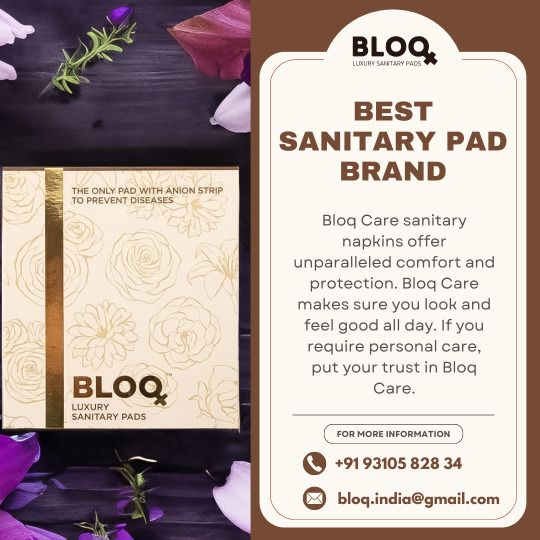
Best Sanitary Pad Brand | Bloq Care
Bloq Care stands as the Best Sanitary Pad Brand in India, providing superior comfort and protection with its ultra-thin, anion-infused pads. Prioritizing women's health, Bloq Care offers eco-friendly, cotton sanitary pads designed for heavy flow and sensitive skin.
Choose Bloq Care for reliable hygiene solutions. Shop now!
#menstrual health#period care#period protection#confidence#extracoverage#periodprotection#menstruation#bloqcare#anionstrip#healthandhygiene
0 notes
Text
Convenience Meets Care: The Best Disposable Feminine Hygiene Products

The global market for disposable feminine hygiene products is experiencing steady growth, driven by rising awareness, increasing demand for hygiene solutions, and shifting consumer preferences. According to the report, the market is projected to grow at a compound annual growth rate (CAGR) of approximately 6% over the forecast period of 2022-2028. Valued at around USD 16 billion in 2022, the market is expected to reach over USD 23 billion by 2028.
What Are Disposable Feminine Hygiene Products?
Disposable feminine hygiene products are single-use items designed to maintain cleanliness and hygiene during menstruation and other bodily functions. These products include sanitary pads, tampons, panty liners, menstrual cups, and other related items. Convenience, ease of use, and availability of a wide variety of products have contributed to the increasing demand for disposable feminine hygiene products.
Get Sample pages of Report: https://www.infiniumglobalresearch.com/reports/sample-request/27598
Market Dynamics and Growth Drivers
Several factors are fueling the growth of the global disposable feminine hygiene products market:
Increasing Awareness and Education: Rising awareness about menstrual health and hygiene, especially in developing regions, is driving the demand for disposable feminine hygiene products. Governments and NGOs are playing a key role in promoting menstrual hygiene through educational campaigns, helping to break taboos and increase product adoption.
Changing Lifestyles and Urbanization: Urbanization and changing lifestyles, particularly among working women, are contributing to the growing preference for disposable feminine hygiene products. Women are increasingly seeking products that offer convenience, reliability, and comfort.
Growing Demand for Comfort and Safety: Modern consumers are increasingly opting for products that provide comfort, safety, and better absorbency. Brands are focusing on developing innovative products that cater to diverse needs, such as overnight protection, organic materials, and hypoallergenic options.
Environmental Concerns Driving Innovation: While disposable feminine hygiene products remain popular, growing awareness about environmental sustainability is prompting manufacturers to develop eco-friendly alternatives. Biodegradable materials and recyclable packaging are becoming important trends in the market.
Rising Disposable Income: As disposable incomes rise globally, particularly in developing regions, women are more likely to invest in high-quality hygiene products, further boosting market growth.
Regional Analysis
North America: North America is a leading market for disposable feminine hygiene products, driven by high product penetration, established consumer awareness, and the presence of major manufacturers. The U.S. and Canada are key markets, with a strong demand for innovative and premium products.
Europe: Europe also represents a significant market, with countries like Germany, the U.K., and France showing high adoption rates. The region’s focus on sustainability and eco-friendly products is influencing product development and consumer preferences.
Asia-Pacific: The Asia-Pacific region is experiencing rapid growth, fueled by increasing awareness, rising disposable incomes, and expanding retail channels. Countries like China, India, and Japan are key markets where product adoption is accelerating due to educational initiatives and improved accessibility.
Latin America and Middle East & Africa: These regions are gradually witnessing market growth as awareness about menstrual hygiene rises. Government programs and partnerships with NGOs are helping to increase the use of disposable feminine hygiene products, particularly in rural areas.
Competitive Landscape
The global disposable feminine hygiene products market is competitive, with several key players and emerging brands offering a wide range of products. Leading companies include:
Procter & Gamble (P&G): One of the largest players in the market, known for its popular brands such as Always and Tampax, offering a variety of feminine hygiene solutions.
Kimberly-Clark Corporation: A major player with brands like Kotex, providing sanitary pads, tampons, and liners with a focus on comfort and innovation.
Unicharm Corporation: A leading manufacturer of feminine hygiene products in Asia, offering a wide range of products tailored to different needs.
Johnson & Johnson: Known for its Carefree and Stayfree brands, Johnson & Johnson focuses on providing affordable and reliable feminine hygiene products.
Edgewell Personal Care: A notable player with the Playtex brand, providing tampons, pads, and liners designed for comfort and protection.
Report Overview : https://www.infiniumglobalresearch.com/reports/global-disposable-feminine-hygiene-products-market
Challenges and Opportunities
The disposable feminine hygiene products market faces several challenges, including concerns over the environmental impact of single-use products and competition from reusable alternatives like menstrual cups and cloth pads. Additionally, the cost of high-quality products may limit access for some consumers, particularly in low-income regions.
However, there are significant opportunities for market expansion. The growing demand for sustainable products, along with innovations in biodegradable and organic materials, presents a key growth area for manufacturers. Companies that invest in eco-friendly solutions and align with consumer preferences for comfort, safety, and convenience are well-positioned to capture a larger market share.
Conclusion
The global disposable feminine hygiene products market is set for robust growth, driven by increasing awareness, changing consumer lifestyles, and rising demand for innovative, comfortable, and sustainable products. With revenue expected to exceed USD 23 billion by 2028, the market offers considerable opportunities for investment and innovation. As consumers continue to prioritize hygiene and sustainability, manufacturers will play a crucial role in shaping the future of this expanding industry.
0 notes
Text
Athena are reusable and washable period pads brand that have been designed to provide women with a greater range of size, flow or activity capacity over ideal comfort for sensitive skin. Athena is an eco-friendly top sanitary pad brand in Malaysia.
Visit Now
1 note
·
View note
Text
[ad_1] Darpan Sanghvi (Left) & Deep Bajaj (Right)3 min read Last Updated : Oct 11 2024 | 12:49 AM IST Beauty and personal care conglomerate Good Glamm Group has completed the acquisition of Sirona Hygiene for Rs 450 crore (approximately $60 million) in an all-cash deal, marking one of the largest cash exits for a direct-to-consumer (D2C) startup in India, especially in the FemTech space. Co-founders Deep Bajaj and Mohit Bajaj had stepped down from their active roles early this year and have now resigned as active directors too, paving the way for a new chapter in Sirona's journey. Click here to connect with us on WhatsApp Darpan Sanghvi, group founder and CEO, Good Glamm Group said the trust of Sirona founders in Good Glamm Group's vision has been instrumental in this acquisition. “We share a common goal of empowering women through innovative and accessible health solutions,” said Sanghvi. Valued at over Rs 450 crore, the group said the deal reinforces the confidence the market has in Sirona’s innovative approach. The transaction has also provided windfall benefits to Sirona’s employees through accelerated ESOP (employee stock ownership plan) vesting, resulting in early financial gains. Founded in 2014-15, Sirona offers a range of products that cater to women from puberty to menopause. The brand has introduced innovations such as PeeBuddy, stand-and-pee device for women and products like herbal period pain patches, exhaustive menstrual cups range, period stain removers, anti-chafing rash creams and sanitary disposal bags. “From PeeBuddy, now used by over 3 million women, to Sirona menstrual cups, used by 4 million women as a pad alternative, we’ve built India’s highest-selling D2C feminine hygiene brand,” Deep said. “It hasn’t been an easy road — bootstrapping, overcoming fundraising challenges, breaking taboos, and dealing with copycats — we have seen it all. This all-cash acquisition feels like validation for all the hard work,” Deep said. In 2022, Good Glamm Group invested Rs 100 crore in Sirona through primary and secondary investments, delivering substantial returns of 6x to 20x for early angel and seed investors. Since then, Sirona has tripled its revenues in just 24 months. Their pay it forward arm Sirona Foundation also educated over 100,000 girls on the importance of menstrual hygiene and donated over 10,000 cups to women in need during this period. Sirona has seamlessly integrated technology into its products, launching India's first WhatsApp period tracker and building a vibrant online community through its app. It has also taken bold steps to enhance feminine hygiene accessibility, installing feminine hygiene vending pods at Delhi airport. It also acquired IMpower, a women’s safety pepper spray brand, and India’s first vegan condom brand, BLEU. “Building Sirona wasn’t easy — there were moments of struggle, doubt, and hardship. But through it all, what kept us going was the unwavering belief in our mission and the trust of those who stood by us,” said Mohit about the deal. “This moment is both bittersweet and a proud validation of a decade’s worth of work.” First Published: Oct 11 2024 | 12:49 AM IST [ad_2] Source link
0 notes
Text
[ad_1] Darpan Sanghvi (Left) & Deep Bajaj (Right)3 min read Last Updated : Oct 11 2024 | 12:49 AM IST Beauty and personal care conglomerate Good Glamm Group has completed the acquisition of Sirona Hygiene for Rs 450 crore (approximately $60 million) in an all-cash deal, marking one of the largest cash exits for a direct-to-consumer (D2C) startup in India, especially in the FemTech space. Co-founders Deep Bajaj and Mohit Bajaj had stepped down from their active roles early this year and have now resigned as active directors too, paving the way for a new chapter in Sirona's journey. Click here to connect with us on WhatsApp Darpan Sanghvi, group founder and CEO, Good Glamm Group said the trust of Sirona founders in Good Glamm Group's vision has been instrumental in this acquisition. “We share a common goal of empowering women through innovative and accessible health solutions,” said Sanghvi. Valued at over Rs 450 crore, the group said the deal reinforces the confidence the market has in Sirona’s innovative approach. The transaction has also provided windfall benefits to Sirona’s employees through accelerated ESOP (employee stock ownership plan) vesting, resulting in early financial gains. Founded in 2014-15, Sirona offers a range of products that cater to women from puberty to menopause. The brand has introduced innovations such as PeeBuddy, stand-and-pee device for women and products like herbal period pain patches, exhaustive menstrual cups range, period stain removers, anti-chafing rash creams and sanitary disposal bags. “From PeeBuddy, now used by over 3 million women, to Sirona menstrual cups, used by 4 million women as a pad alternative, we’ve built India’s highest-selling D2C feminine hygiene brand,” Deep said. “It hasn’t been an easy road — bootstrapping, overcoming fundraising challenges, breaking taboos, and dealing with copycats — we have seen it all. This all-cash acquisition feels like validation for all the hard work,” Deep said. In 2022, Good Glamm Group invested Rs 100 crore in Sirona through primary and secondary investments, delivering substantial returns of 6x to 20x for early angel and seed investors. Since then, Sirona has tripled its revenues in just 24 months. Their pay it forward arm Sirona Foundation also educated over 100,000 girls on the importance of menstrual hygiene and donated over 10,000 cups to women in need during this period. Sirona has seamlessly integrated technology into its products, launching India's first WhatsApp period tracker and building a vibrant online community through its app. It has also taken bold steps to enhance feminine hygiene accessibility, installing feminine hygiene vending pods at Delhi airport. It also acquired IMpower, a women’s safety pepper spray brand, and India’s first vegan condom brand, BLEU. “Building Sirona wasn’t easy — there were moments of struggle, doubt, and hardship. But through it all, what kept us going was the unwavering belief in our mission and the trust of those who stood by us,” said Mohit about the deal. “This moment is both bittersweet and a proud validation of a decade’s worth of work.” First Published: Oct 11 2024 | 12:49 AM IST [ad_2] Source link
0 notes
Text
Eco-Friendly Night Sanitary Pads: Sustainable and Safe Options

In today's environmentally conscious world, more and more people are looking for sustainable alternatives in every aspect of their lives – from groceries to personal care products. One of the most significant areas of change has been in menstrual care. Women are increasingly opting for eco-friendly sanitary pads, especially for nighttime use, where comfort and protection are paramount. With concerns about plastic waste, chemical exposure, and overall environmental sustainability, eco-friendly night sanitary pads are becoming a preferred choice for many.
What are night sanitary pads?
Night sanitary pads are specially designed menstrual pads that provide extra coverage and absorbency for overnight use. They are typically longer and wider than regular pads to prevent leaks while you sleep, ensuring comfort and protection throughout the night. These pads are made to absorb a heavier flow, offering peace of mind during longer wear. Many night pads also feature wings for added security to keep them in place.
What Are Eco-Friendly Night Sanitary Pads?
Eco-friendly nighttime sanitary pads are menstrual products designed with sustainability in mind. They are made from natural or biodegradable materials that reduce environmental harm. Unlike traditional pads, these options minimize plastic usage, making them better for the planet. Many eco-friendly pads are also reusable, offering long-term benefits. They provide comfort and protection while supporting environmentally conscious living.
The Environmental Impact of Traditional Sanitary Pads
Traditional sanitary pads are often made with synthetic materials like plastic and chemicals that take centuries to decompose. Millions of pads end up in landfills each year, contributing significantly to environmental pollution. The production of these pads also consumes large amounts of energy and water, adding to their carbon footprint. Their non-biodegradable components, like plastic liners, also threaten marine life when disposed of improperly. Shifting to eco-friendly options can help mitigate these impacts.
Benefits of Using Eco-Friendly Night Sanitary Pads
Eco-friendly night sanitary pads offer several advantages, both for the user and the planet. They reduce exposure to harmful chemicals, making them safer for sensitive skin. Reusable pads can save money in the long run, as they last for years with proper care. By choosing sustainable pads, you’re contributing to less waste and a lower carbon footprint. These pads also provide excellent absorption and comfort, ensuring a worry-free night’s sleep.
Popular Materials in Sustainable Night Sanitary Pads
Sustainable night sanitary pads are made from natural, biodegradable materials like organic cotton, bamboo, or hemp. These materials are free from synthetic chemicals and offer high absorbency without the environmental toll of plastic-based pads. Organic cotton is a popular choice because it’s breathable and hypoallergenic, while bamboo is known for its antibacterial properties. Many brands also avoid using harsh dyes and fragrances, ensuring a safer product for the skin and the environment.
How Eco-Friendly Night Pads Promote Safer Menstrual Care
Eco-friendly night sanitary pads prioritize both safety and sustainability. Made from natural fibers, they reduce the risk of skin irritation, rashes, and allergies caused by synthetic chemicals found in conventional pads. These pads are also free from fragrances, dyes, and chlorine bleaching, which can affect sensitive areas. By using non-toxic, breathable materials, they promote better hygiene and comfort during menstruation. Additionally, they align with environmentally responsible practices, ensuring healthier choices for users.
Comparing Organic vs. Synthetic Night Sanitary Pads
Organic night sanitary pads are made from natural, chemical-free materials like organic cotton, while synthetic pads often contain plastic, chemicals, and artificial fragrances. Organic pads are biodegradable and hypoallergenic, reducing the risk of skin irritation. In contrast, synthetic pads are usually cheaper but contribute more to environmental pollution and health risks. When comparing the two, organic pads are more environmentally friendly, offering a safer and more sustainable option for menstrual care.
How to Choose the Best Eco-Friendly Night Sanitary Pad
When choosing the best eco-friendly night sanitary pad, consider factors such as material, absorbency, and reusability. Look for pads made from organic cotton or other natural fibers, as these are gentle on the skin. If you have a heavy flow, opt for pads with high absorbency to ensure comfort throughout the night. Reusable pads are cost-effective and sustainable, while disposable eco-friendly pads offer convenience. Make sure the brand is transparent about its production methods and environmental impact.
Caring for Reusable Eco-Friendly Night Pads
Reusable eco-friendly night sanitary pads require proper care to ensure longevity and hygiene. After use, rinse them in cold water to remove stains and then wash them by hand or in the washing machine using a mild detergent. Avoid using fabric softeners, as they can reduce the pads' absorbency. Air-dry the pads to maintain their integrity. With proper care, reusable pads can last for years, making them a cost-effective and environmentally friendly alternative to disposable products.
Conclusion
Eco-friendly night sanitary pads provide a sustainable and safe alternative to conventional menstrual products. They are not only better for the environment but also healthier for your body. By choosing pads made from organic, biodegradable materials, you can reduce your environmental impact without compromising on comfort or protection. Whether you prioritize ethical sourcing, superior absorbency, or chemical-free products, there's an eco-friendly option out there for you. Making the switch to sustainable menstrual products is a small but significant step toward a greener planet and healthier living.
1 note
·
View note
Text
Feminine Hygiene Products Market Size, Key Players, Applications, Analysis, Share, Trends and Forecast 2032 - Industry Research Report 2024
The global feminine hygiene products market revenue is projected to witness steady growth over the next decade, with the market size valued at USD 24.5 billion in 2023 and expected to reach USD 37.88 billion by 2031. This represents a compound annual growth rate (CAGR) of 5.6% from 2024 to 2031, driven by increasing awareness of personal hygiene, rising disposable income, and the introduction of innovative feminine hygiene products.
Feminine hygiene products include a wide range of products designed for menstrual management, personal care, and intimate hygiene. These products include sanitary napkins, tampons, menstrual cups, pantyliners, and feminine wipes. The market’s growth reflects changing attitudes toward menstrual health and hygiene, as well as the growing availability of sustainable and eco-friendly options.
Key Market Drivers
Rising Awareness and Focus on Women's Health: Increasing awareness about menstrual health and hygiene, particularly in developing countries, is a major factor driving the market. Educational initiatives and campaigns led by governments, non-governmental organizations (NGOs), and companies are helping to break the stigma surrounding menstruation and promote the use of feminine hygiene products. As a result, more women are adopting safer and more effective menstrual care solutions.
Growing Demand for Sustainable and Eco-Friendly Products: The rise in environmental consciousness has led to increased demand for sustainable and eco-friendly feminine hygiene products. Biodegradable sanitary pads, reusable menstrual cups, and organic cotton tampons are gaining popularity among consumers who are seeking environmentally responsible alternatives. The push for reducing plastic waste and minimizing the environmental impact of menstrual products is reshaping the market, creating opportunities for innovation and product diversification.
Increased Access and Affordability in Emerging Markets: Improved access to feminine hygiene products in developing countries is another critical driver. Government initiatives to provide affordable menstrual products, coupled with rising disposable income and urbanization, are making these products more accessible to a broader consumer base. The expansion of distribution networks in rural areas is further facilitating market growth in regions where access to such products has historically been limited.
Product Innovation and Technological Advancements: Ongoing innovation in the feminine hygiene sector is contributing to market growth. Companies are introducing products that offer better comfort, absorption, and protection, while also incorporating advanced technologies such as odor control and leak prevention. New product categories like organic and toxin-free menstrual products are gaining traction among health-conscious consumers, particularly in developed markets. The advent of subscription-based models and direct-to-consumer brands is also transforming how consumers purchase and engage with feminine hygiene products.
Growing Female Workforce and Changing Lifestyles: The increasing participation of women in the workforce, along with changing lifestyles, has led to a higher demand for convenient and reliable menstrual hygiene products. Working women, especially in urban areas, are prioritizing products that offer long-lasting protection and comfort, driving the adoption of premium feminine hygiene products.
Request a Free Sample @ https://www.snsinsider.com/sample-request/1190
Challenges and Opportunities
Despite the promising growth prospects, the feminine hygiene products market faces several challenges. Cultural taboos, particularly in conservative societies, continue to hinder the adoption of menstrual products in certain regions. Additionally, the high cost of premium and sustainable products can be a barrier for low-income consumers. However, growing awareness, coupled with efforts to reduce prices and increase product availability, is expected to mitigate these challenges over time.
The rising popularity of digital platforms and e-commerce is also providing opportunities for market expansion. Online retailing allows companies to reach a wider audience, particularly in regions where traditional distribution networks are underdeveloped. Subscription services, in particular, are gaining popularity among consumers seeking convenience and personalized product offerings.
Regional Insights
The Asia-Pacific region is expected to dominate the feminine hygiene products market during the forecast period, driven by the large population base, increasing disposable income, and rising awareness about menstrual health. Countries such as India and China are witnessing rapid growth due to government initiatives aimed at improving menstrual hygiene and expanding access to affordable products.
North America and Europe also represent significant markets, with a strong focus on product innovation and sustainability. In these regions, consumers are shifting toward organic and eco-friendly products, supported by rising environmental consciousness and strong purchasing power.
Future Outlook
As the global focus on women’s health and hygiene continues to grow, the feminine hygiene products market is set to experience steady growth. With a projected CAGR of 5.6% from 2024 to 2031, the market is expected to expand from USD 24.5 billion in 2023 to USD 37.88 billion by 2031. This growth will be driven by increasing consumer demand for innovative, sustainable, and affordable menstrual products, as well as continued efforts to improve access and education in emerging markets.
In conclusion, the feminine hygiene products market is undergoing a significant transformation, driven by rising awareness, technological innovation, and the growing demand for eco-friendly options. With a strong outlook for future growth, the industry is poised to make a positive impact on women's health and well-being worldwide.
Other Trending Reports
Process Analytical Technology Market Growth
Biodegradable Medical Plastics Market Growth
Smart Hospitality Market Growth
IoT Medical Devices Market Growth
0 notes